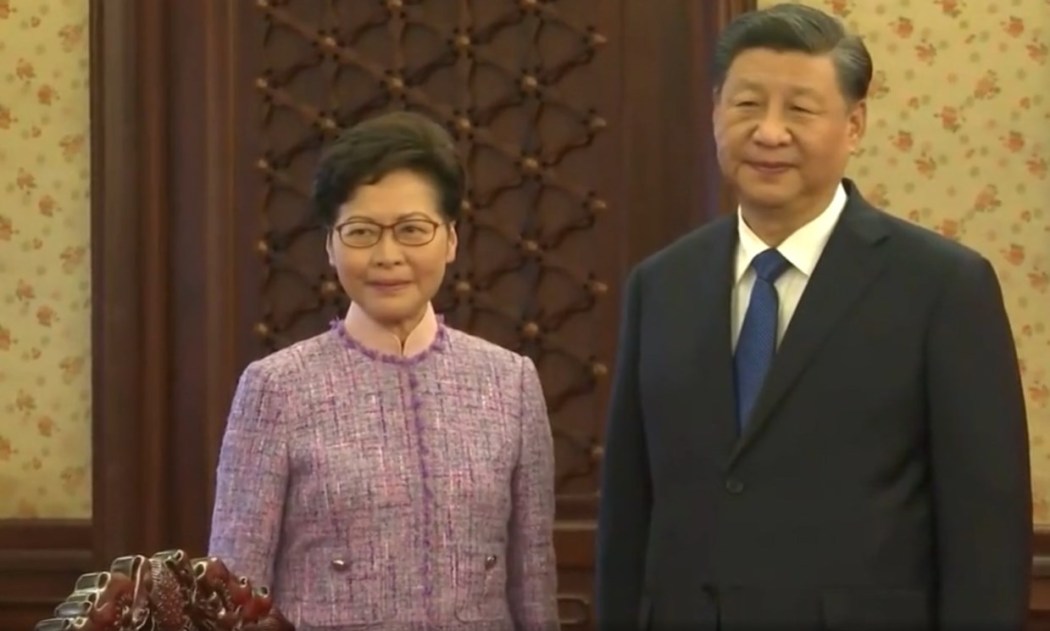The nomination period for the small-circle chief executive election slated for March 27 will open on February 20, five days later than expected. Election officials have not explained the reason for the apparent delay.
The window to nominate candidates vying to become the city’s next leader will be open from February 20 to March 5 – the statutory minimum span of 14 days.

The chief executive will be selected by a total of 1,463 voters in the 1,500-seat Election Committee, most of whom are government-designated figures or elites produced by small-circle elections.
Despite repeated questions from the press during a briefing on Thursday, officials from the Electoral Affairs Commission (EAC) and the Registration and Electoral Office did not address why the nomination period would open five days later than was announced last year.
Chief Electoral Officer Raymond Wang – who decided on the nomination dates – said the nomination period was set following discussions with the government, “in full compliance with with the requirements of the Chief Executive Election Ordinance.”
“I have nothing to add,” he said, after reporters pressed him on whether Beijing had played a role in his decision.

The nomination period was previously expected to begin on February 15 and to continue for 16 days, but the final decision was not gazetted until Thursday, eight weeks ahead of polling.
In 2016, the nomination period was set more than 13 weeks before polling day.
Vetted candidates and voters
A vetting committee, officially comprised of seven top government officials, will determine which candidates are eligible to run no more than seven days after nominations close, based on whether they are deemed to comply with the Basic Law and bear allegiance to the Hong Kong and Chinese governments. This means that it could be as late as three weeks before polling day that Hongkongers find out who the final candidates are.
The vetting committee also validated the eligibility of the 1,463 voters who will cast a ballot for the chief executive.
One of those top officials, Home Affairs Secretary Caspar Tsui, has been absent from the vetting committee’s recent meetings, a government statement said. On the chief executive’s orders, he has been on leave from official duties since January 7 after attending a birthday party and potentially violating Covid-19 social distancing rules.

In March 2021, Beijing passed legislation to ensure “patriots” govern Hong Kong. The move reduced democratic representation in the legislature, tightened control of elections and introduced a pro-Beijing vetting panel to select candidates. The Hong Kong government said the overhaul would ensure the city’s stability and prosperity. But the changes also prompted international condemnation, as they made it near-impossible for pro-democracy candidates to stand.
As part of the overhauled system, chief executive election candidates are required to receive least 188 nominations from Election Committee members and at least 15 nominations from each of the committee’s five sectors.
The maximum amount of expenses each candidate’s campaign can incur has also been raised from HK$15.7 million to HK$17.6 million, a 12 per cent increase. Electoral officials attributed it to an added number of voters and routine adjustments.
Polling day
Voting on election day will open from 9 a.m. to 11 a.m., and from 3 p.m. to 4 p.m. If any of the candidates receive more than 750 valid ballots by 11 a.m., they will be considered the winner and polls will close.

Otherwise, voting will resume in the afternoon.
Ballot counting will be open to viewing by members of the public and the media, although election authorities said the number of public observers allowed to enter will be capped.
Eligible voters will be “encouraged” to use the government’s Covid-19 LeaveHomeSafe contact-tracing app when entering the Wan Chai Convention and Exhibition Centre to vote, but it will not be made mandatory. The city has no laws allowing the government to bar individuals from exercising their constitutional right of casting a ballot, head of the EAC Barnabas Fung said.
However anyone entering the vote counting area must use the app, except for persons with exemptions, such as children under 12, those aged 65 or above, and people with disabilities.
Support HKFP | Policies & Ethics | Error/typo? | Contact Us | Newsletter | Transparency & Annual Report | Apps
Help safeguard press freedom & keep HKFP free for all readers by supporting our team

LATEST FROM HKFP
HKFP has an impartial stance, transparent funding, and balanced coverage guided by an Ethics Code and Corrections Policy.
Support press freedom & help us surpass 1,000 monthly Patrons: 100% independent, governed by an ethics code & not-for-profit.










